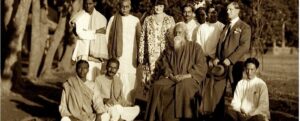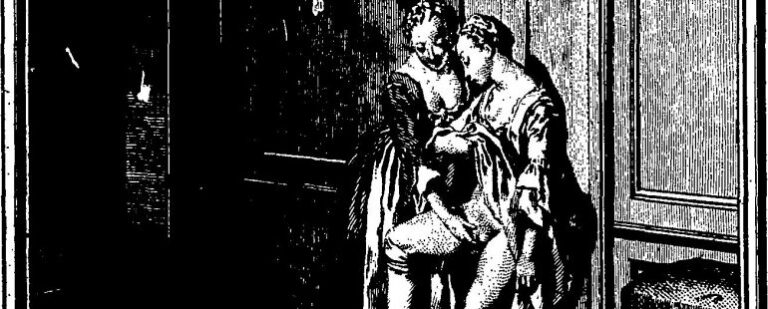Seeking a Poet’s Soul and Native Heritage

I grew up in India’s heartland, 500 miles from Bengal, the state where I was born and where I originally hail from – and where one of India’s greatest poets lived and wrote. The poet, India’s only Nobel Prize winner in literature, Rabindranath Tagore, was a Bengali. My mother tongue is Bengali, but during my growing-up years, I chose to learn and write in English instead, relegating my mother tongue to a secondary position.
In a Ploughshares Blog post last year, poet John Rufo rued the fading influence of Tagore, the Nobel Prize recipient closest to being India’s national poet. Another Nobel Prize winner from India, Amartya Sen, has admitted, “He is not much read now in the West.” Sen quotes Graham Greene, who said in 1937: “As for Rabindranath Tagore, I cannot believe that anyone but Mr. Yeats can still take his poems very seriously.” (Irish poet W.B. Yeats helped Tagore translate his poetry for the Western world.) I have to admit that even being a Bengali, I have read little of his poetry, even in English translation.
However, Tagore has lived in my house and mind since I was a child growing up in Bhilai, in the state of Chhattisgarh, right in the heart of India. My father, now long dead, was a devotee of Tagore, filling our house with songs of the poet and volumes of his poems. In school, our prayer most days was a poem from Gitanjali, Tagore’s best-known collection of poems:
Where the mind is without fear and the head is held high
Where knowledge is free
Where the world has not been broken up into fragments
By narrow domestic walls
It’s a nationalistic poem written during British rule in India, but remains relevant today. In the poem, Tagore prays for freedom and the awakening of his country, but the ideals of reason and his caution against “narrow domestic walls” ring true universally. Tagore was a rationalist, even though his image in the West is that of a mystic.
I have sought Tagore since then, inhaling his spirit, although I have felt the door to his phenomenal creation shut or, at best, only partially open, thanks to my limited knowledge of Bengali. He wrote until close to his death in 1941, having won the Nobel Prize in 1913. Although Tagore wrote successfully in all literary genres, he was primarily a poet, writing some 50 volumes of poetry. He wrote musical dramas, dance dramas, essays, travel diaries, and two autobiographies. Tagore also left numerous drawings and paintings, and songs, for which he composed the music himself. Tagore, like Walt Whitman, whom I have read more extensively, also wore the hat of a nationalist and spiritual thinker. Finally, Tagore proved a pioneer in experimental education, setting up a university in Santiniketan, in Bengal’s Bolpur district.
I visited Santiniketan several years ago in pursuit of the poet and his inspiration. As writers, we often trace our heritage to national poets like Tagore. I made a foray into Tagore country to claim him and, thereby, my linguistic heritage. I had returned to my home town of Calcutta, 100 miles from Santiniketan, and, freshly infused with romantic and literary passion right after my marriage, I went with my wife and family. I trod the red soil of Bolpur.
Over two days, I walked the red earth, spying coconut trees in the yards of houses by the roadside. I trekked to the campus of what is now Visva-Bharti University, the seat of learning the poet founded. The poet’s vision was to educate students in an “ashram,” or hermitage, where they would be out in the open, constantly in touch with nature – the myriad trees, plants, flowers and birds that surround the campus.
I entered the museum and art gallery, housed within the Uttarayan complex (Tagore’s former home), and, filled with awe, wandered the poet’s hallowed halls, face-to-face with items that once belonged to him. I saw the numerous medals he had won from all over the world.
Outside, I saw students, under an open sky, painting on canvas or rapt in a classroom session under trees. I sat beneath the canopy of a chatim tree (Alstonia scholaris) and lingered on campus, seeking the poet’s soul. “Could I ever hope to write as luminously as he did?” I wondered.
My wife and I climbed into a rickshaw. As we rode out of campus, I felt a shower of blossoms raining down on us from a tree. I looked up the tree, awash with white flowers, swaying in the breeze. I imagined the poet blessing me.
I connected with Tagore. I connected with my ancestors – my grandfather’s name was Rabindranath, too – and I felt an affinity toward my mother tongue, the rich language of Tagore and Bengal. Someday, I will improve my Bengali enough to immerse myself in Tagore’s work.


